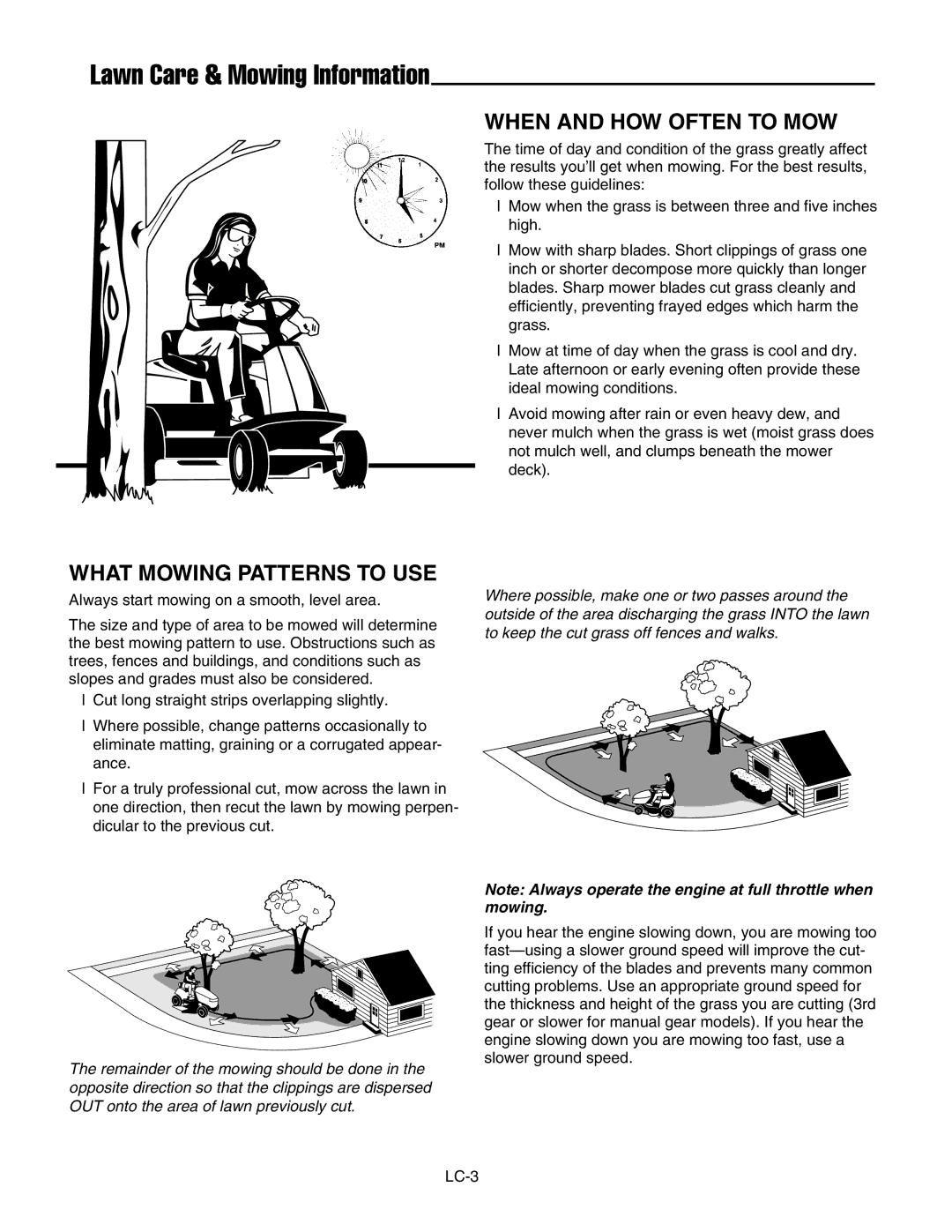
Lawn Care & Mowing Information
WHEN AND HOW OFTEN TO MOW
The time of day and condition of the grass greatly affect the results you’ll get when mowing. For the best results, follow these guidelines:
l Mow when the grass is between three and five inches high.
l Mow with sharp blades. Short clippings of grass one inch or shorter decompose more quickly than longer blades. Sharp mower blades cut grass cleanly and efficiently, preventing frayed edges which harm the grass.
l Mow at time of day when the grass is cool and dry. Late afternoon or early evening often provide these ideal mowing conditions.
l Avoid mowing after rain or even heavy dew, and never mulch when the grass is wet (moist grass does not mulch well, and clumps beneath the mower deck).
WHAT MOWING PATTERNS TO USE
Always start mowing on a smooth, level area.
The size and type of area to be mowed will determine the best mowing pattern to use. Obstructions such as trees, fences and buildings, and conditions such as slopes and grades must also be considered.
l Cut long straight strips overlapping slightly.
lWhere possible, change patterns occasionally to eliminate matting, graining or a corrugated appear- ance.
lFor a truly professional cut, mow across the lawn in one direction, then recut the lawn by mowing perpen- dicular to the previous cut.
Where possible, make one or two passes around the outside of the area discharging the grass INTO the lawn to keep the cut grass off fences and walks.
The remainder of the mowing should be done in the opposite direction so that the clippings are dispersed OUT onto the area of lawn previously cut.
Note: Always operate the engine at full throttle when mowing.
If you hear the engine slowing down, you are mowing too
